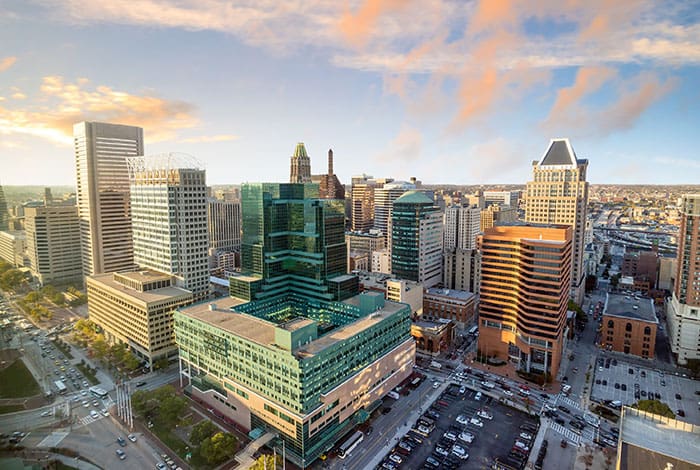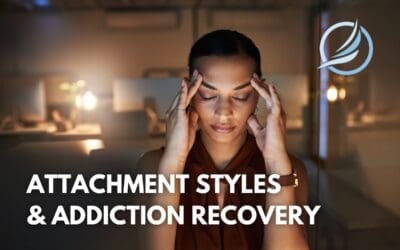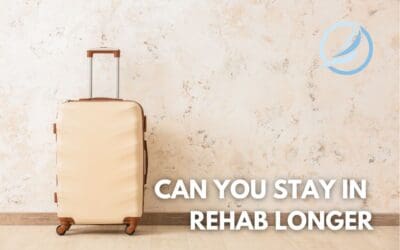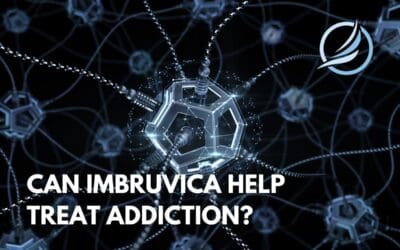Does Addiction Have A Cure?
If you are looking for addiction treatment in Maryland or anywhere else, the first step is understanding that addiction is, in fact, an illness. It is considered a substance use disorder of the brain, and just like any other, it requires proper treatment. Addiction affects the way the brain is “wired”, as it also damages areas responsible for the psychological function, behavior, judgment, decision making, self-control, and much more.
Addiction has more to do with just a mere desire for a certain substance. It brings on an actual feeling of need, a feeling which becomes excessive to the point of making the person lose control over their lives. This is not a simple condition to get over, but there are many ways in which someone struggling with addiction can get ahold of their lives again. Recovery treatment for addiction is comprised of many steps, one more important than the last.
It is not necessary to go through all of the steps in just one facility, as it might not be so easy to find one with everything that you wish for your treatment in Maryland or other states. However, in order to treat addiction, all of them are necessary, and it is vital to understand that getting better and staying clean is an ongoing process that goes beyond a recovery program. It will require work, rebuilding social connections, support from loved ones, and many other steps besides medical and psychiatric help, all in order to avoid relapse and to ensure a full recovery. Yes, it will be tough. But it is more than possible.
Addiction In Maryland
As much as there have been efforts for addiction prevention, and even though there are options for addiction treatment in Maryland, the numbers reported have been going up, just as it has been for the rest of the country, too.
While some substances have caused fewer deaths than they used to, such as heroin and alcohol, others have been on the rise in Maryland. One drug that has generated great concern is fentanyl since the number of deaths related to the drug started going up circa 2016 in the state and in most of the country.
The most recent data shows that about 89% of substance-related reported deaths involved opioid use, even when it wasn’t the only substance found in the victims’ systems. For heroin-related deaths, 87% of victims had trace amounts of fentanyl found in their system, and the same happened to 80% of alcohol-related deaths.
This occurs because fentanyl is often mixed by users with other substances in order to make effects more potent, making it even more alluring. By 2018, fentanyl had killed 1888 people, more than cocaine (891) and heroin (830) combined, in Maryland.
Despite not being the most deadly drug in Maryland as of now, the number of cocaine-related deaths has also been increasing rapidly in the most recent years. While it made up 17% of drug-related deaths reported in 2015, which is when the number of cocaine-related deaths started going up, it became the second deadliest drug by 2018, as 37% of deaths reported involved cocaine use. In that year, it surpassed deaths involving alcohol, heroin, and even prescription opioids.
For demographic groups, it seems that no matter the drug in question, victims labeled under “white” and “male” are the most often reported for all kinds of substance-related deaths, and therefore the group most at risk. When it comes to age, however, that depends on the drug. Most victims of the deadliest drug in the state are of ages 25-34, whilst for the second, the group with the highest number of victims reported were between the ages of 45 and 54.
What To Expect From The Treatment Process
Naturally, the first step towards recovery would be detoxification. This stage is where most people trying to quit experience the most intense versions of the withdrawal symptoms caused by abstinence from what they are addicted to.
These symptoms and effects vary depending on the substance, the dose, the level of addiction, family history, and a few other health factors. So while some people might choose to quit “cold turkey”, which means naturally and abruptly, the safest option would be to go through medically assisted detoxification. This way, professionals can medicate the patient in order to treat the symptoms without causing additional damage. Quitting this way will also lower the chances of relapse and overdose.
Once this initial stage is done, it is time to start medical and psychiatric treatment. The way this phase will work depends on the service setting chosen for the recovery program, as there are a few options to consider. Figuring out which one is the most fitting takes some research, a medical assessment, and looking into your financial options regarding payment and coverage.
Inpatient vs. Outpatient Treatment
Inpatient programs, also called residential, involve 24-hour treatment as the patient checks in to the facility for monitoring and assistance all day, every day, until the end of treatment. The program is mainly recommended for people suffering from severe addiction, with a greater chance of relapsing when left alone, and/or that could be a danger to themselves or others around them.
Inpatient treatment can be as short as 28 days, but it can go on for a few months, depending on the case. While some people can go straight back into their routine after the program, others might choose to transition slowly by going through outpatient treatment.
Outpatient treatment allows for patients to go back home every day, and they must only come into the facilities for activities related to treatment, such as therapy, medical appointments, group meetings, and anything else they might participate in. The number of visits a week and how long these visits last are different for each service setting.
Partial hospitalization, for instance, requires almost daily visits for more extended periods of time. Intensive outpatient programs, however, only demand a few visits a week for less time. This option is the most fitting for mild to moderate addiction, and for those who have a good support system at home and can go back to a safe environment, free from chances of falling back into addiction again. This treatment might take longer than inpatient because it is not happening 24/7 in the facilities, but the duration will also depend on the case.
What Else Can Be Done?
Even though the “basic” requirements for treatment are the previously mentioned services, there is more to improvement than that. One of the pillars of adaptation into sober life is attending group activities targeted towards recovering addicts. Group therapy, meetings, exercising, and/or classes are all great ways to better understand your process while also connecting to others going through the same changes as you.
Working on improving your general health besides just treatment for substance abuse-related effects can help keep you balanced and make recovery smoother. As you exercise and improve your diet, for instance, this helps the body recover and work on any lingering symptoms and effects. Organizing your personal and professional life is another great way to establish goals to follow in order to stay motivated and feel like you are truly improving, all of which help prevent feelings that might lead to relapse.
Additional Dangers Related To Addiction
Besides the horrible symptoms of addiction, there are also other health reasons to want to quit substance abuse. Continuous use of substances can expose one to dangerous situations and increase their chances of contracting diseases with long-term effects. To begin with, constant consumption of chemicals, drugs, and other substances can overwork the liver and the kidneys, since the first metabolizes drugs and the latter filters waste from the body. This would also make them more fragile and prone to partial or severe failure.
Along with these issues common to substance abuse, there is the risk of contracting any other diseases not necessarily related to addiction alone. One of these would be HIV, a disease contracted through the blood. The same goes for hepatitis C, as it, too, can be contracted by sharing needles. Even without sharing, it is possible to contract diseases through repeated injection, such as infections or other skin diseases like sepsis, which can both become bad enough to the point of requiring amputation.
If someone uses a certain substance during pregnancy, this can have effects on both the pregnancy and the baby, and the potential issues go beyond the malformation of the fetus. Especially when it comes to opioids, consumption during pregnancy can lead to Neonatal Abstinence Syndrome. In fact, babies can experience effects described as abstinence withdrawal symptoms after being born, as early as a few days.
Get The Help You Need
It might seem like there is too much to consider or to take in when deciding to quit. But having so much to choose from can be easier than it seems with the right team to help you out. We at The Freedom Center hope to be able to come to your aid as you research, consider, and pick the best treatment option for you.
If you need help for yourself or a loved one, find out more about our options by visiting our website or contacting us at your convenience. We can answer any doubts and questions you might have, and can truly help you start your path to a healthier life as you leave addiction behind for good. Just call us today at (888) 530-5023.
References:
https://bha.health.maryland.gov/Documents/Annual_2018_Drug_Intox_Report.pdf
https://www.kidney.org/kidneydisease/top-5-jobs-kidneys-do

































